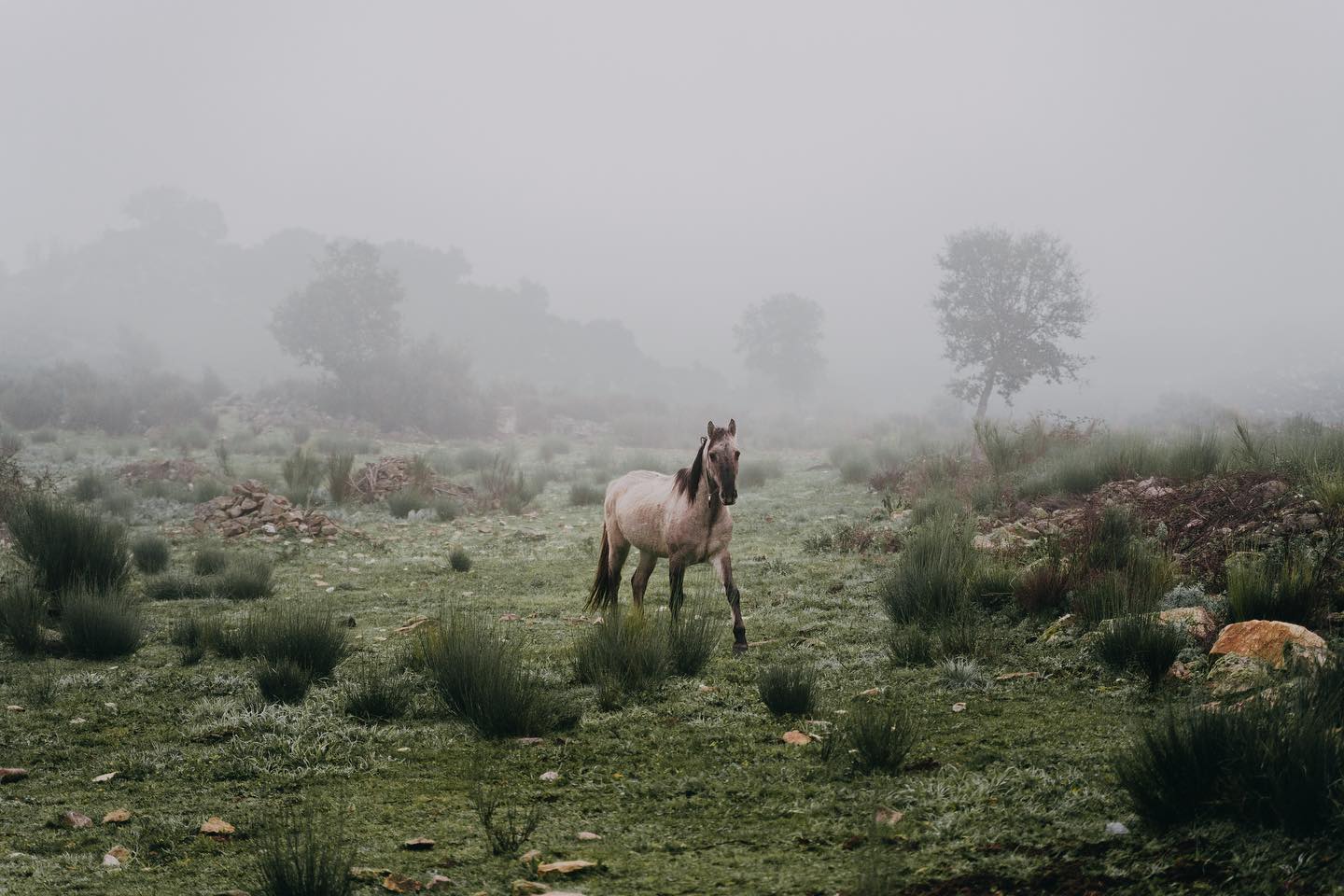BBC (13/3/2024)
On a cold, misty morning, a herd of dun-coloured Sorraia horses, an endangered local breed, graze on grass and small shrubs, their short and stocky bodies enveloped in the mist by the Côa river in the mountains of northeastern Portugal. As the sun rises and the mist starts to dissipate, it unveils the deep gorges of the Côa Valley, where vultures and eagles nest on the cliffs.
Further south, a herd of large black and chestnut cattle with long horns run with agility. Known as tauros, these bovines are a specially bred version of the long-extinct auroch, the wild ancestor of the modern cow.
The horses and tauros were released by Rewilding Portugal, a non-profit organisation whose mission is to create a 1,200 sq km (463 sq miles) wildlife corridor along the Côa River, improving habitat connectivity between the Douro River in the north and the Malcata mountains in the south.
“We promote the coming back of wild species and replace the extinct ones, such as the auroch and the wild horse,” says Pedro Prata, the head of Rewilding Portugal. Since it was established in 2019, the organisation has released two herds of 20 Sorraia horses and 15 tauros in an area spanning about 20 sq km (7.7 sq miles) to restore natural processes with natural grazing (…)
Photos by Diana Takacsova
